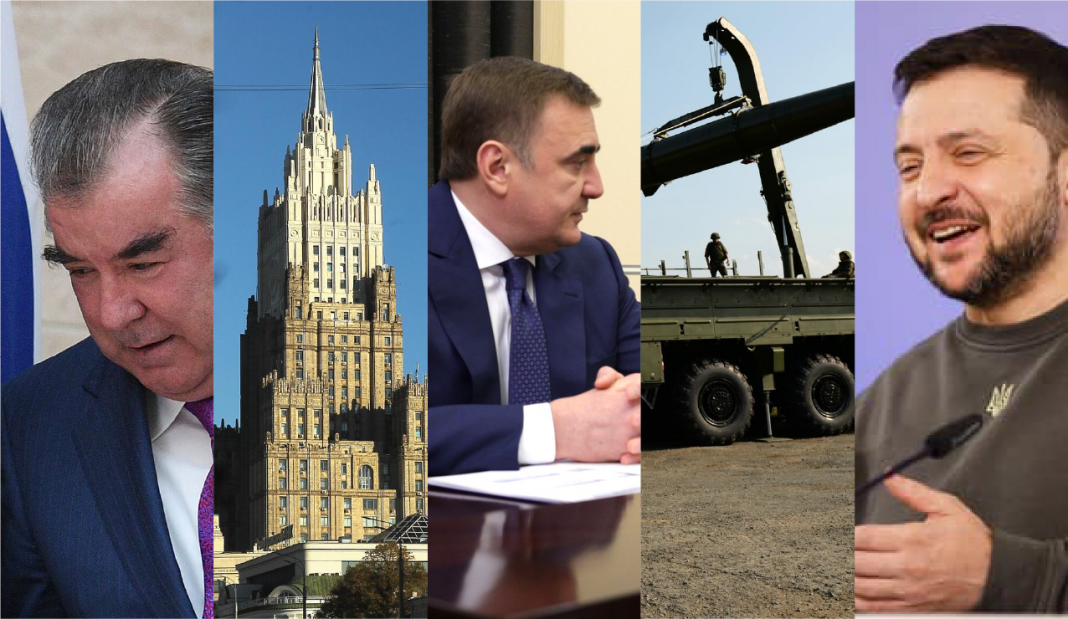This report describes the key events which significantly influenced Russia’s political, economic, and social processes.
Assessing the past week’s results, we determine the following trends:
- Alexey Dyumin, Putin’s former bodyguard and a man repeatedly predicted to have a significant political future, may well move to a new position. It is still difficult to predict what kind of chair Putin has prepared for his favourite and confidant. But in Moscow they believe that Dyumin’s role will be one of the most important in the president’s circle. Last year, Dyumin was one of those who helped Putin put an end to the Prigozhin rebellion. Dyumin also seriously influences the processes in law enforcement agencies (his protégé Valery Flyustikov is the head of the Special Operations Forces of the Russian Federation; issues of creating and licensing new PMCs, etc., are resolved through Dyumin). Dyumin is closely connected with two antipodes – Boris Kovalchuk and Sergei Chemezov. That is why almost no one now questions Dyumin’s rise to power.
- After the tragic events at Crocus City Hall, a wave of anti-Tajik sentiment swept across Russia. This led to a situational cooling of relations between Moscow and Dushanbe. Personal ties between Vladimir Putin and Emomali Rahmon have never been trusting and cloudless: Rahmon could always say uncomfortable things to Putin’s face, which happened more than once at international summits. However, in the current situation, both Tajikistan and Russia are interested in the speedy normalisation of relations since both states are closely tied to each other geopolitically and economically. The fact that Rakhmon agreed to participate in Putin’s inauguration and be present in Moscow on Victory Day shows that the conflict at this stage has been resolved.
- Putin has a lot to thank the government for: Mishustin and his team maintained the Russian economy during the coronavirus pandemic and during the war with Ukraine (by rebuilding the economy on a war footing and minimising the negative consequences of sanctions). Thus, Putin made it clear that he was satisfied with the government’s activities and was ready to renew contracts with most of the previous cabinet members. The second part of the meeting was supposed to concern new appointments, but it was decided to postpone it to May 13. Thus, the intrigue with the appointment of new ministers may drag on: experience shows that Putin usually needs about ten days for this.
This report highlights the most relevant topics for Russia between the 29th of April and the 6th of May, namely:
1. Meeting with the Governor of the Tula region Alexey Dyumin;
2. Meeting on economic issues;
3. Telephone conversation with the President of Tajikistan Emomali Rahmon;
4. Meeting with members of the Government;
5. Summoning the ambassadors of France and the United Kingdom to the Foreign Ministry;
6. Exercises on the use of tactical nuclear weapons;
7. Putting several Ukrainian politicians on the wanted list.
This Content Is Only For Subscribers
- Meeting with the Governor of the Tula region Alexey Dyumin
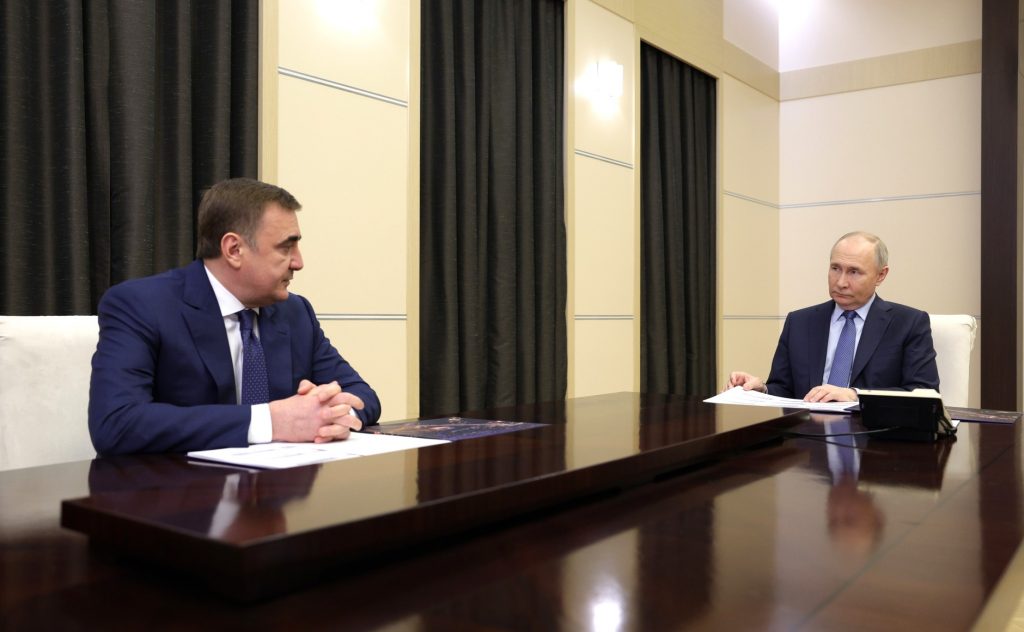
On Thursday, May 2, Vladimir Putin held a working meeting with the Governor of the Tula Region, Alexei Dyumin. According to official data, during the meeting, issues of socio-economic development of the region and providing citizens with housing and support for participants in the so-called “SMO” were discussed. At the same time, a number of media outlets and telegram channels are increasingly discussing the issue of Alexey Dyumin’s possible promotion and further move to Moscow.
Key theses:
- Dyumin: “But today, I would like to start the meeting with the most important and most relevant for today. We are talking about the most important priority – this is the support of the participants, our guys who take part in the [so-called] “SMO”, and their family members. We provide full social, psychological, and medical assistance and resolve household issues at various levels. Currently, about 60 support measures are in force in the region.”
- Dyumin: “Our developers came up with the initiative to create a housing fund free of charge. The government of the Tula region, together with our builders, is currently creating about 50 apartments that will be renovated and furnished. This fund is aimed at solving housing issues that, for one reason or another, do not fall under support measures or require additional paperwork, some things related to the collection of certificates, and so on.”
- Dyumin: “Another support measure that we have introduced in the Tula region, which is quite popular among military families, is the “Zabota” card. This is an opportunity to take advantage of discounts on various services from 5 to 25 per cent. The partners who have joined this program are small and medium-sized businesses, private stores, and networkers. There are already about a thousand of them who work using this card. She is quite in demand.”
- Dyumin: “The Tula region is the weapons capital. We got involved in supporting our defence enterprises. Of course, first of all, we are talking about human resources. I would like to note the work of our enterprises, enterprise managers, engineers, designers, and all personnel who, with responsibility and understanding, carry out the tasks that you set as the Supreme Commander-in-Chief, the leadership of the Ministry of Defense, for those tasks and the nomenclature that are produced from ours in the shortest possible time factories and goes to the front line.”
- Dyumin: “In your Address to the Federal Assembly, you outlined several important strategic tasks. One of them is improving the quality of medical care and strengthening support for doctors. I would like to report that your decision to pay doctors in small towns and settlements has been fully implemented. We also support doctors at our regional level: we strengthen federal support measures, making one-time and monthly payments to doctors of certain specialities, medical students, and residents.”
Outcomes and outlook:
Alexey Dyumin, Putin’s former bodyguard and a man who has been repeatedly predicted to have a significant political future, may well move to a new position. It is still difficult to predict what kind of chair Putin has prepared for his favourite and confidant. But in Moscow they believe that Dyumin’s role will be one of the most important in the president’s circle. Last year, Dyumin was one of those who helped Putin put an end to the Prigozhin rebellion. Dyumin also seriously influences the processes in law enforcement agencies (his protégé Valery Flyustikov is the head of the Special Operations Forces of the Russian Federation; issues of creating and licensing new PMCs, etc., are resolved through Dyumin). Dyumin is closely connected with two antipodes – Boris Kovalchuk and Sergei Chemezov. That is why almost no one now questions Dyumin’s rise to power.
- Meeting on economic issues
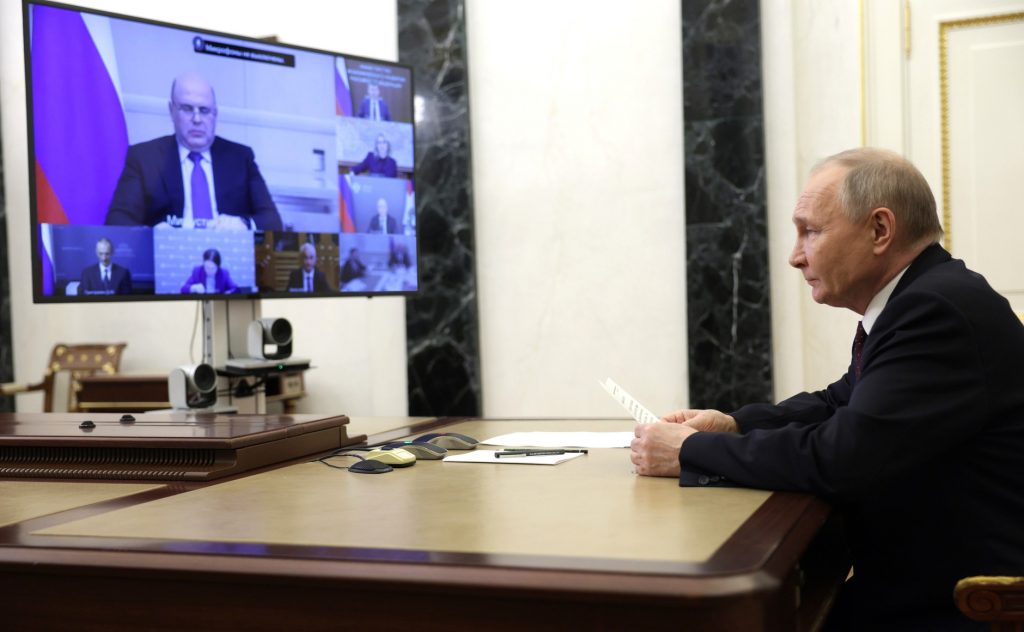
On Friday, May 3, Vladimir Putin held a regular meeting on economic issues via videoconference. The main topic of the meeting was the discussion of budget plans for the period until 2030.
The meeting was attended by Prime Minister Mikhail Mishustin, Chief of the Presidential Administration Anton Vaino, First Deputy Prime Minister Andrei Belousov, Deputy Prime Minister Tatyana Golikova, Deputy Prime Minister – Chief of the Government Staff Dmitry Grigorenko, Aide to the President Maxim Oreshkin, Minister of Economic Development Maxim Reshetnikov, Minister Finance Anton Siluanov and Chairman of the Central Bank Elvira Nabiullina.
Outcomes and outlook:
Staff meetings on economic issues have become essential to Putin’s activities. He demonstrates that he manages the Russian economy manually, fully delving into the agenda and intricacies of the financial sphere. In any case, the event has an absolutely operational focus – to determine the state of the Russian economy and the prospects for its development for the next six years, which Putin plans to spend at the country’s helm. This is all the more important for understanding what Putin promised during the election campaign can be implemented.
- Telephone conversation with the President of Tajikistan Emomali Rahmon
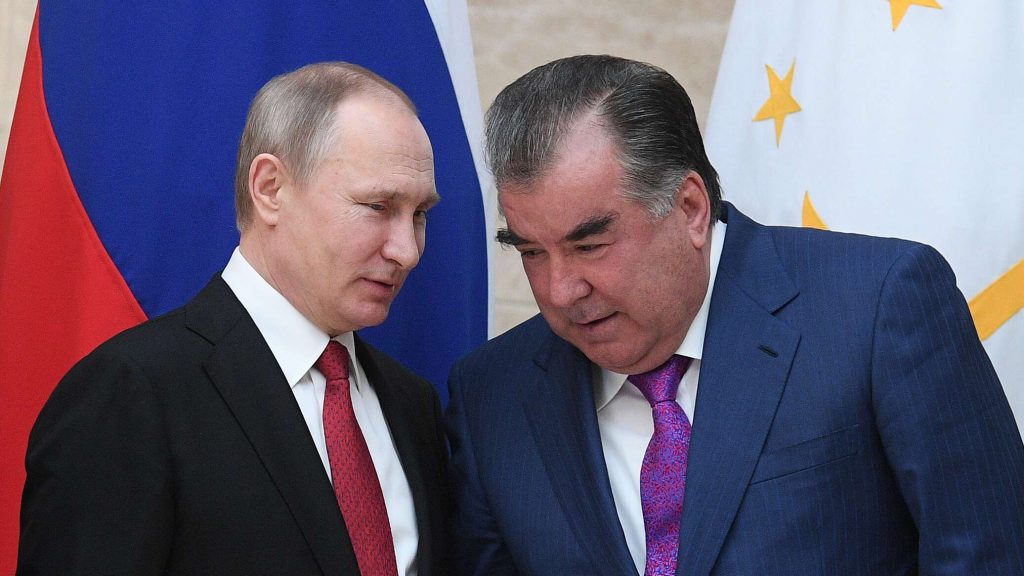
On Friday, May 3, Vladimir Putin had a telephone conversation with the President of Tajikistan, Emomali Rahmon. According to official statements of the parties, the topic of conversation was a discussion of joint participation in ceremonial events dedicated to Victory Day in Moscow, to which Emomali Rahmon was invited. An exchange of views was also held on some current bilateral topics, including cooperation in the fight against the terrorist threat and in the migration field. The parties agreed to improve interaction mechanisms between relevant ministries and departments in this context.
Against the backdrop of an intensifying crisis in bilateral relations caused by a change in attitude towards citizens of Tajikistan after the terrorist attack in Crocus City Hall, the parties stated that the recent intensified attempts by specific forces to artificially escalate the situation around labour migrants coming to Russia, including from Tajikistan, will jointly be suppressed and will not be able to damage the time-tested fraternal relations between the peoples of the two countries.
Outcomes and outlook:
After the tragic events at Crocus City Hall, a wave of anti-Tajik sentiment swept across Russia. This led to a situational cooling of relations between Moscow and Dushanbe. Personal ties between Vladimir Putin and Emomali Rahmon have never been trusting and cloudless: Rahmon could always say uncomfortable things to Putin’s face, which happened more than once at international summits. However, in the current situation, both Tajikistan and Russia are interested in the speedy normalisation of relations since both states are closely tied to each other geopolitically and economically. The fact that Rakhmon agreed to participate in Putin’s inauguration and be present in Moscow on Victory Day shows that the conflict at this stage has been settled.
- Meeting with members of the Government
On Monday, May 6, Vladimir Putin visited the Government House, where he met with government members and thanked them for their joint work over the previous years. The meeting was attended by members of the ministerial cabinet in full.
Key theses:
- Putin: “We remember how it all began, I mean how your work began in this composition and team. It began just on the eve of the unpleasant events associated with the coronavirus pandemic for all of us.”
- Putin: “I must note that together with you, we passed this test with dignity. It was associated with the mobilisation of all our resources in the field of healthcare, the entire social sphere, but not only, but also industry and the production of everything that was needed for the country, for organising the fight against coronavirus and, in general, once more: overall, we got through it with dignity.”
- Putin: “I remember well how we resolved issues, say, on construction projects, on road construction, whether to close it, not to close it, how to do it, what to do with groups, including creative teams, how to support them in conditions when we were forced to limit their work. And so on and so on. There were a lot of questions, and in general, measures to support huge enterprises and entire sectors of the economy were balanced and timely. And all this gave a corresponding, generally satisfactory result for the fight against coronavirus and the economy.”
- Putin: “Well, in 2022, other problems began because we were convinced that after eight years of mockery of the people who lived and lived in Donbas, we are unable to solve the problems in this region, the problems of the people whom we have always considered ours, and they considered Russia their historical homeland, cannot be resolved through peaceful means. A little later, it became clear that the nose was simply leading us, and we had to take extraordinary measures to protect these people by force.”
- Putin: “Last year, the Russian economy grew higher than the world’s. In this indicator, we are ahead not only of the leading countries of the European Union but also of all the states of the so-called “Big Seven”. Together, we searched for worthy answers to the most complex historical challenges and, on the whole, successfully overcame them. And, what is fundamentally important, we continued to solve current problems, and actively and consistently worked on the development agenda within the framework of key national goals and priorities. We strengthened our international positions; the security and sovereignty of Russia were at the forefront of all the tasks that we set and solved for ourselves.”
- Putin: “I would especially like to note the systematic work of the Government to introduce modern approaches and digital management technologies. Much has been done to bring the processes of sectoral and interdepartmental coordination to a qualitatively new level, to systematically improve the quality and accessibility of public services for citizens, and to improve the business and investment climate, which is extremely important for the final overall result.”
- Putin: “You know that soon, by the Constitution of the Russian Federation, the procedure for forming a new Government will take place. And during this period, we need to do everything necessary to ensure that the implementation of plans actively continues, so that there are no pauses in our work. Therefore, I expect concentration, composure, and work for results from colleagues at all levels of the executive branch. We need continuity in the work to achieve national development goals. And I am sure that all this will certainly be ensured.”
- Mishustin: “Today, you said that, according to the Constitution, members of the Government, including the Chairman, resign. But I am sure, and many members of the Cabinet of Ministers told me this, that no matter what position my colleagues find themselves in, they will be committed to fulfilling the country’s national development goals. They will do everything for their state and their citizens.”
Outcomes and outlook:
Putin has a lot to thank the Government for – Mishustin and his team maintained the Russian economy during the coronavirus pandemic and the war with Ukraine (by rebuilding the economy on a war footing and minimising the negative consequences of sanctions). Thus, Putin made it clear that he was satisfied with the Government’s activities and was ready to renew contracts with most of the previous cabinet members. The second part of the meeting was supposed to concern new appointments, but it was decided to postpone it to May 13. Thus, the intrigue with the appointment of new ministers may drag on: experience shows that Putin usually needs about ten days for this.
- Summoning the ambassadors of France and the United Kingdom to the Foreign Ministry
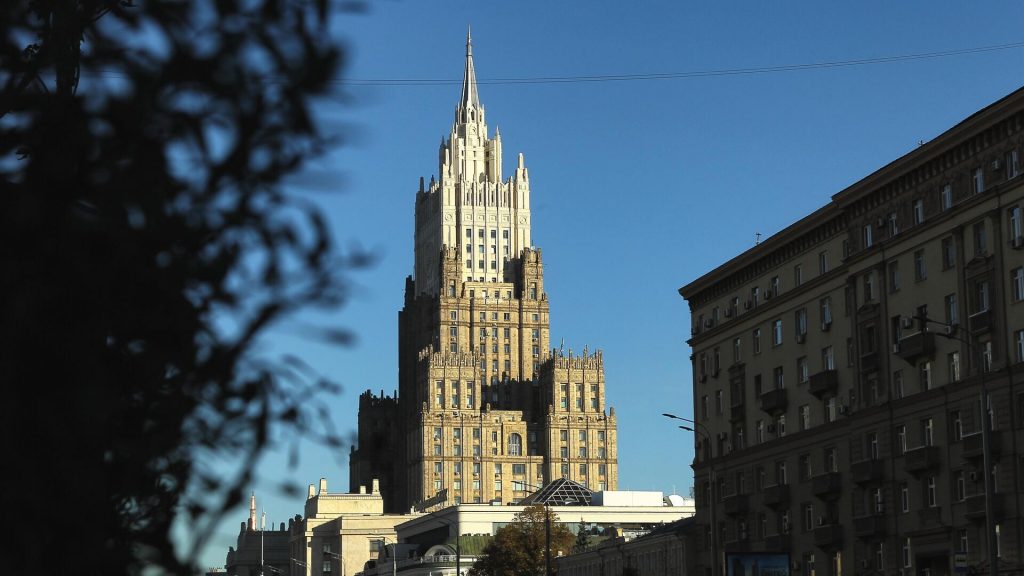
On Monday, May 6, the Russian Ministry of Foreign Affairs summoned British Ambassador Nigel Casey to discuss current bilateral relations. Later, French Ambassador Pierre Levy also arrived at the Foreign Ministry building. The British diplomat reportedly spent half an hour in the facility and left without speaking to the press. Following him, the French ambassador arrived at the Russian Foreign Ministry, who also left the media without comment.
Later, the Russian Foreign Ministry officially threatened Britain with strikes on its territory in the event of Ukrainian strikes on the Russian Federation’s territory with British missiles: “The response to Kyiv’s strikes on the Russian Federation using British weapons could be strikes on military targets in the United Kingdom and outside Ukraine.” The Russian Foreign Ministry also called Britain to “think about the catastrophic consequences of London’s hostile steps and immediately refute Cameron’s statements.”
The Russian Foreign Ministry also published a note handed to the French Ambassador. The department said that Pierre Levy was summoned “due to belligerent statements by the country’s leadership and the growing involvement of Paris in the conflict in Ukraine.”
Probably, that was about Macron’s recent statements about possibly sending troops into Ukraine. The note says, “The Russian side outlined fundamental assessments of the destructive and provocative line of Paris, leading to further escalation of the conflict.”
It is noteworthy that immediately after communicating with the heads of the diplomatic missions of the UK and France, Russia officially announced the holding of exercises on the use of tactical nuclear weapons.
Outcomes and outlook:
This is not the first time that Russia has expressed protests to representatives of Western countries about their role in supporting Ukraine or regarding the statements of confident leaders that are regarded as “unfriendly” in Russia. Thus, the following delivery of notes can be considered a routine action, which shows that events in Ukraine are increasing the degree of conflict between the Russian Federation and the West.
- Exercises on the use of tactical nuclear weapons
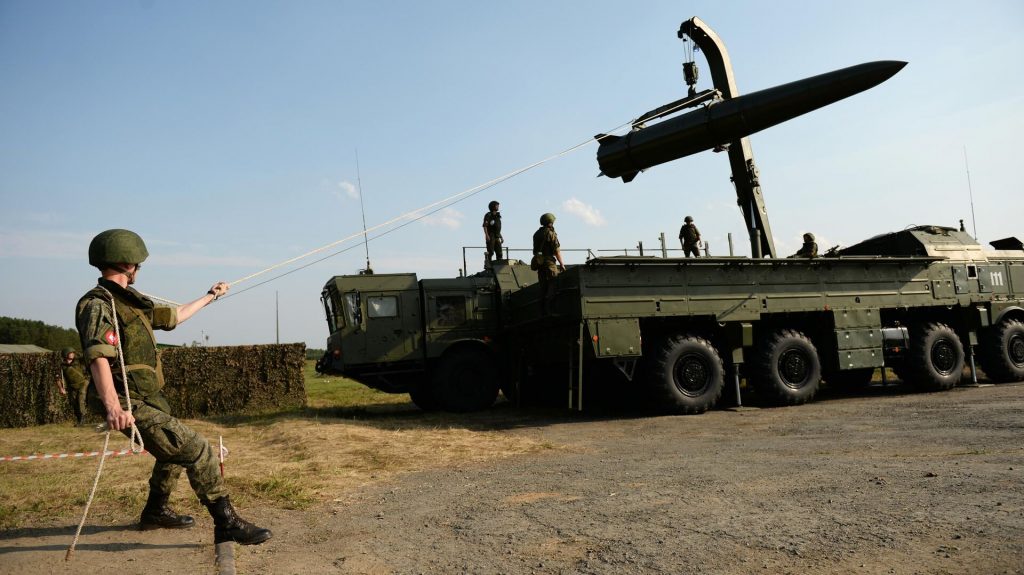
On Monday, May 6, the Russian Ministry of Defense announced preparations for tactical nuclear weapons exercises. According to the statement, during the exercise, a set of activities will be carried out to practice the preparation and use of non-strategic nuclear weapons. It is also noted that they will be carried out “in the near future” by missile formations of the Southern Military District (its headquarters is the headquarters of the Russian troops fighting in Ukraine), with the involvement of aviation and the forces of the Russian Navy.
The report notes that the reason for their holding is “provocative statements by certain Western officials.” It is also pointed out that the exercises are aimed at maintaining the readiness of personnel and equipment of units for the combat use of non-strategic nuclear weapons to respond.
Later, Dmitry Medvedev and Dmitry Peskov also confirmed with their statements that tactical nuclear weapons exercises are related to statements by Western politicians about the possibility of sending troops to Ukraine.
Outcomes and outlook:
The exercises are designed to show that Russia can use its nuclear potential. During the war in Ukraine, this is already the third practical warning from the West – previously, exercises and bringing nuclear warhead delivery vehicles to combat readiness took place in the Northern Fleet and the Pacific Fleet. These exercises will take place near the Ukrainian border for the first time. Essentially, this is Russia’s response to British Foreign Secretary James Cameron’s statement that London will not be against the use of British weapons (including missiles) by Ukraine against targets located on the territory of the Russian Federation. In response, there were statements from senior officials in Moscow that the use of British weapons by Ukraine would lead to the use of Russian weapons against the UK. The exercises should show that Russia is not bluffing or joking.
- Putting several Ukrainian politicians on the wanted list
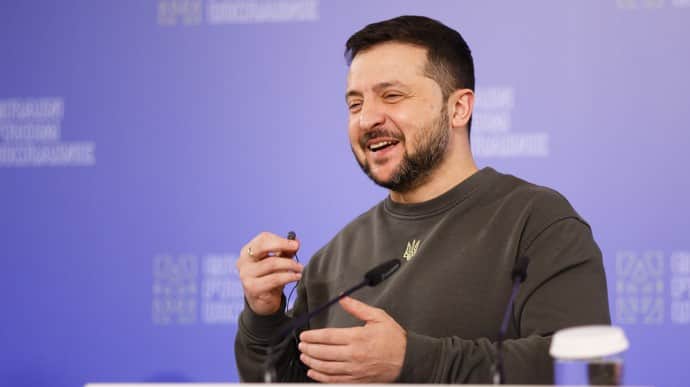
Over the past week, the Russian Ministry of Internal Affairs officially put several Ukrainian politicians on the wanted list. We are talking about both current high-ranking officials and ex-ministers or other officials. Thus, on May 4, the Ministry of Internal Affairs of the Russian Federation officially put Vladimir Zelensky on the wanted list, and after him, ex-President Petro Poroshenko. Both are wanted under an article of the Criminal Code of the Russian Federation, but without specifying which one—on the same day, following Zelensky and Poroshenko, the Russian Ministry of Internal Affairs put Pavlyuk, commander of the Ground Forces of the Ukrainian Armed Forces, on the wanted list.
Already on Monday, May 6, new cards regarding Ukrainian ex-officials appeared on the Ministry of Internal Affairs website. In particular, the Ministry of Internal Affairs of the Russian Federation put on the wanted list the ex-Secretary of the National Security and Defense Council Danilov, the former Minister of Internal Affairs Avakov, the ex-head of the Ministry of Foreign Affairs Klimkin, as well as the former Prime Minister Groysman.
Outcomes and outlook:
By putting individual Ukrainian politicians on the wanted list, Russia outlines a circle of people with whom it is not ready and will not conduct peace negotiations. This action can be deciphered as a message to the West and not to Ukraine. If negotiations take place, they indeed should not be conducted on the Ukrainian side by either Zelensky’s or Poroshenko’s team (which the West views as the opposition and alternative to Zelensky’s). That is, Russia makes it clear that it does not want to deal with those politicians who came to power in Ukraine in the wake of the Maidan and the “electoral revolution” of 2019. At the same time, a campaign has begun in the Russian media to focus attention on two politicians – Yulia Tymoshenko and Dmitry Razumkov, whom they are trying to show as “negotiable” and “non-aggressive”. Such publications may have another goal: undermining confidence in these politicians within Ukraine and sowing suspicion and hostility in the political camp. However, the fact that Russia is beginning to dictate personnel conditions actively is symptomatic and quite dangerous.

